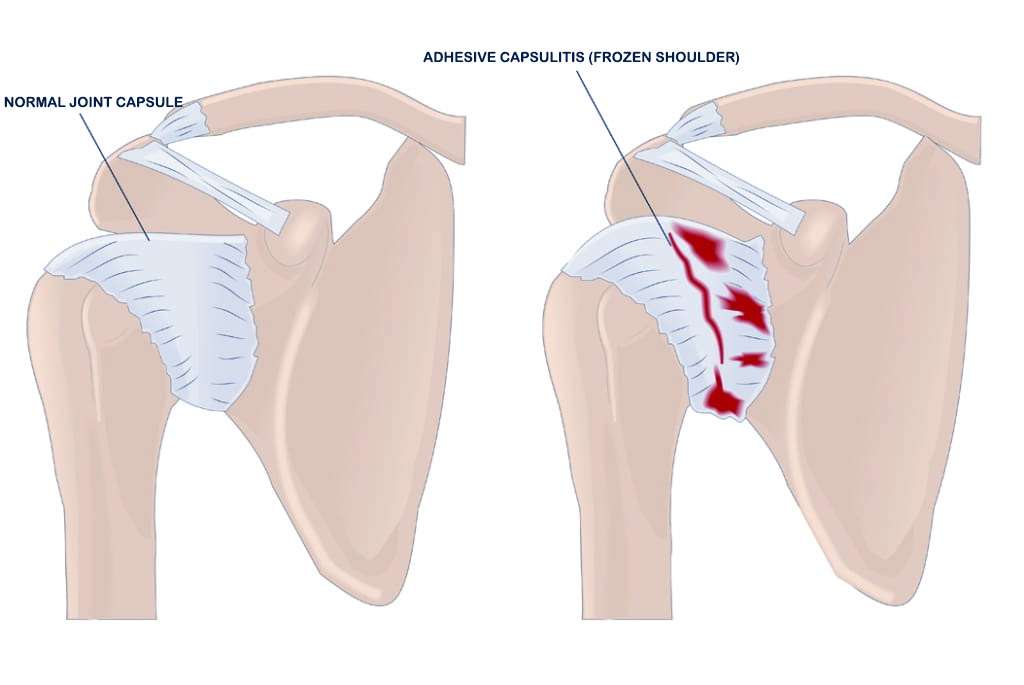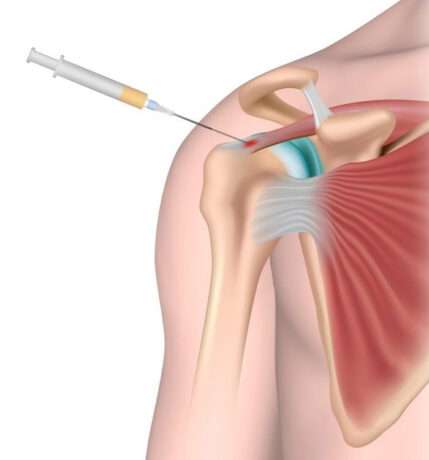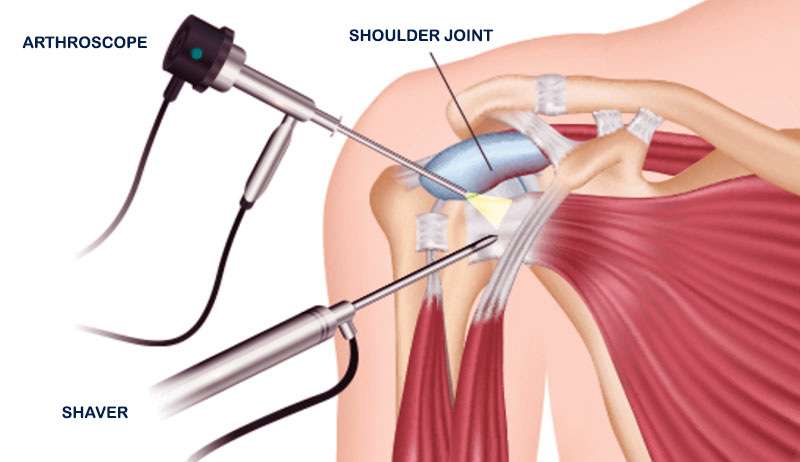Frozen shoulder, also known as adhesive capsulitis, can be a distressing condition characterized by pain, stiffness, and limited shoulder mobility. Managing the pain effectively is crucial to improving the patient’s quality of life. In this article, we will delve into the causes and symptoms of frozen shoulder and discuss effective non-invasive and interventional pain management methods to help find relief.
Frozen shoulder develops when the capsule surrounding the shoulder joint thickens and tightens, leading to the formation of adhesions or scar tissue. This restricts shoulder mobility, resulting in debilitating pain and stiffness. Although the precise cause of frozen shoulder remains elusive, factors such as diabetes, prior shoulder injuries, and extended periods of shoulder immobility can heighten the risk.

Pain: Persistent pain in the affected shoulder is the cardinal symptom of frozen shoulder. This pain can range from sharp to dull and tends to worsen with movement.
Stiffness: Gradual loss of shoulder mobility is a hallmark of this condition. Simple tasks like reaching for objects or lifting the arm become increasingly challenging.
Limited range of motion: Frozen shoulder typically progresses through distinct stages: the freezing stage (characterized by heightened pain and stiffness), the frozen stage (with persistent pain and limited mobility), and the thawing stage (marked by gradual mobility improvement).
Physical therapy plays a pivotal role in frozen shoulder treatment. A skilled physical therapist customizes exercises and stretches to enhance shoulder mobility and alleviate pain. These exercises aim to break up adhesions and restore the full range of motion.
Applying heat or ice pack to the affected shoulder can offer temporary pain relief. Heat relaxes the muscles and increases blood flow, while ice reduces inflammation and numbs the area.
Healthcare providers may recommend over-the-counter pain relievers like ibuprofen or prescribe stronger medications to manage pain and inflammation.
In cases where conventional methods may not provide adequate relief, interventional pain management techniques become paramount:
Corticosteroid Injections: These precise injections target the affected area with the guidance of ultrasound, delivering potent anti-inflammatory medication directly to the source of pain.

Radiofrequency Ablation: This minimally invasive procedure uses radio waves to disrupt pain signals from the shoulder, providing long-lasting pain relief.
Nerve Blocks: Local anesthetics can be injected near nerves responsible for transmitting pain signals from the shoulder, offering immediate relief.
This procedure (hydrodistetion) involves injecting sterile water into the shoulder joint to gently stretch the capsule. It can significantly enhance range of motion and pain relief.
In rare cases, surgery may be necessary to treat frozen shoulder. This may involve manipulating the shoulder joint while the patient is under anesthesia, or in some cases, arthroscopic surgery to remove scar tissue or adhesion.

Frozen shoulder can significantly impact one’s quality of life, primarily due to the persistent pain and limited mobility it causes. In the journey to manage this condition effectively, interventional pain management techniques have emerged as indispensable tools. Collaborating closely with healthcare professionals, such as pain specialists, can help tailor a personalized pain management plan, incorporating these advanced interventions where necessary. By prioritizing interventional techniques, patients can regain their shoulder mobility and find relief from the often-debilitating pain associated with frozen shoulder.